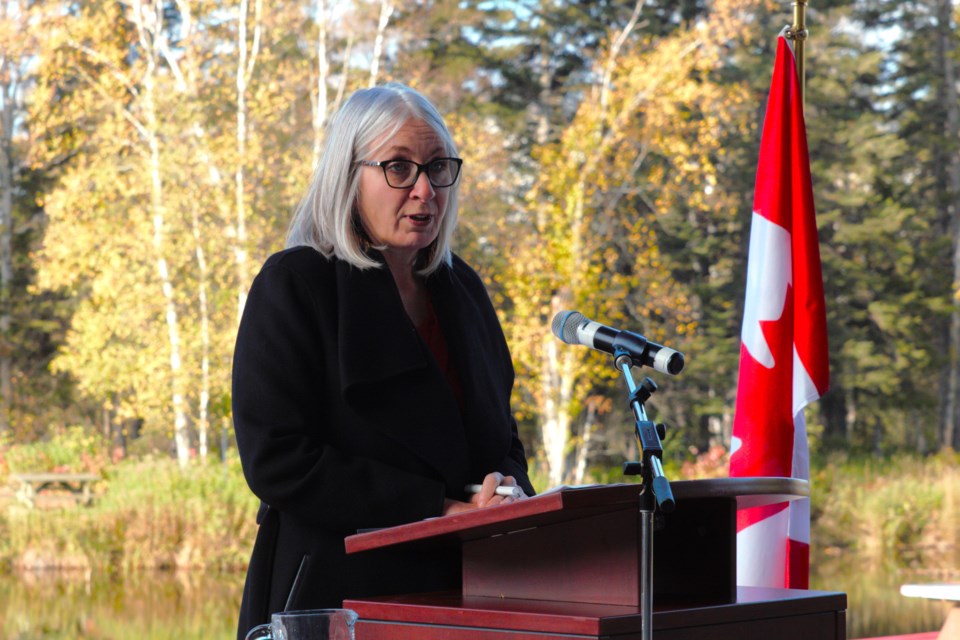OTTAWA – On Tuesday, Auditor General Karen Hogan released a new report and her findings highlighted a well-documented issue concerning housing in Indigenous communities.
In 2021, the Assembly of First Nations estimated that $44 billion was needed to improve housing in First Nations communities and needs continue to grow.
“First Nation communities with the poorest housing conditions received less funding than communities in with the same size,” said Hogan in a press conference.
The auditor general’s report confirms that over the last five years, Indigenous Services Canada and the Canada Mortgage and Housing Corporation spent $3.86 billion on improving housing in First Nations communities.
Yet, according to Hogan, mould in First Nations homes is still a long-standing health hazard.
“We found that Indigenous Services Canada and the Canada Mortgage and Housing Corporation still did not know the magnitude of the problem. In fact, the department and the corporation are currently not following the strategy that they developed in 2008 to address this problem and neither could explain why the strategy was no longer in use,” explained Hogan.
Currently, Hogan stated there is no plan in place to tackle these issues.
“This is the fourth year since 2003 that we are raising the alarm about unsafe and unsuitable housing in First Nations communities. Adequate housing is a basic human need. After four audit reports, I can honestly say that I am completely discouraged that so little has changed and that so many First Nations individuals and families continue to live in substandard homes,” Hogan reflected.
In an interview with the Minister of Indigenous Services Canada, Patty Hajdu, she defended the Liberal government by stating that her ministry disagrees with the auditor general’s report.
She stated that the federal government shouldn't impose its priorities on First Nations communities.
Hajdu claims when the Liberal government was elected in 2015, the federal government got to work right away in triaging the housing crisis in First Nations communities with “ambitious investments.”
“That doesn’t mean that’s a good news story. What we need is, we need to see continued ambitions and investments that are self-determined,” said Hajdu.
Instead, Hajdu stressed the importance of self-determination among Indigenous communities.
“Gone are the days,” Hajdu stated, "where governments impose their wills on Indigenous communities. The federal government cannot just walk into a community with a building plan and begin construction. Whether it be a small modular home or an apartment complex, the building needs to be tailored to the specific community needs.
“We have to work with First Nations partners on the solutions. Because of what we’ve seen year over year, decade over decade, the government swoops in and says 'well here is what we are going to do to fix your problem.' It will not be the right solution. I can guarantee it will not be the right solution.
"It will be driven through the lens of, oftentimes, non-Indigenous people who don’t live in the community and don’t understand the reality,” acknowledged Hajdu.
She reflected on previous governments who have built cost-effective, cookie-cutter traditional nuclear family homes into communities where sometimes multi-generational families live under the same roof.
“Some communities are now choosing to build different models of housing to deal with and to actually embrace a different way of conceptualizing family. So, we have to work with Indigenous communities even in those challenging circumstances where things are very desperate,” said Hajdu.
She said she would not argue that more “ambitious investments” for Indigenous communities need to be provided by the government, but “solutions cannot come from the colonizer and applied in a colonial setting on top of indigenous people.”
“We have to work with indigenous leaders to understand how to work best to move more quickly to move this needle,” explained Hajdu.
